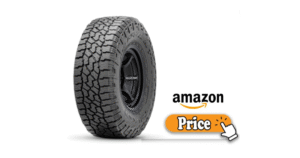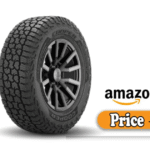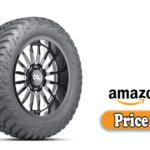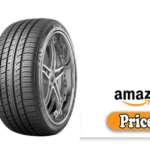When it comes to tires, most people only start caring when something goes wrong, like a sudden flat on the highway, a scary skid in the rain, or a strange humming noise that makes every commute unbearable.
I’ve always believed that your tires are the unsung heroes of safety and comfort, connecting your car to the road in ways we often take for granted. After years of driving with different tire brands, from budget options to premium flagship, I finally decided to put Falken tires to the test.
The reason? I kept hearing drivers talk about Falken as the “sweet spot” brand: affordable enough for daily drivers but engineered with performance DNA that comes from motorsport roots.
In this in-depth guide, “Falken Tires Reviews | My Honest Review,” I’ll walk you through everything I loved, what I didn’t, how they performed in real-world conditions, and whether I’d buy them again.
This isn’t a spec sheet rundown; it’s a human, behind-the-wheel perspective based on thousands of miles across highways, city streets, rain-soaked roads, and even a few gravel detours.
What I Like
After months of testing Falken tires, some standout qualities really impressed me:
1. Excellent Wet Grip
One of the most nerve-wracking driving conditions is heavy rain. Hydroplaning can happen in seconds, but Falken’s tread design handled water incredibly well. Even in standing puddles, my car felt planted. The sense of control was reassuring, something I’d expect from a more expensive tire.
2. Balanced Price-to-Performance Ratio
Falken sits in a goldilocks zone: more advanced than typical budget brands but not as wallet-punishing as Michelin or Continental. For drivers who want performance without breaking the bank, Falken hits that balance beautifully.
3. Durability Over Long Miles
I was pleasantly surprised at how slowly the tread wore down. After 15,000 miles, they still had healthy grooves, and wear looked even across the set. That speaks volumes about build quality.
4. Comfortable Ride Quality
Some performance tires sacrifice comfort for handling. Falken seems to bridge that gap, offering a smooth, almost cushioned ride even on patched-up city roads.
5. Versatility Across Models
Whether it’s the Wildpeak AT3W (for off-road/all-terrain lovers) or the Ziex ZE950 (great for daily all-season use), Falken has options that cover a broad spectrum of drivers.
What Could Be Better
Of course, no product is perfect. While Falken tires shine in many areas, some aspects could use improvement:
1. Road Noise on Rough Surfaces
On smooth highways, Falkens are fairly quiet. But on coarse asphalt or older pavement, there’s a noticeable hum that gets louder as the tires age. For drivers sensitive to cabin noise, this might be a dealbreaker.
2. Snow and Ice Performance
While some Falken all-season models handle light snow decently, they’re not dedicated winter tires. On icy mornings, traction wasn’t as reliable as I would have liked. If you live in a snow-heavy region, you’ll need a proper winter tire.
3. Limited Availability in Some Sizes
Depending on your vehicle, you may not find Falken tires in every size or spec. This can be frustrating if you’re set on the brand but drive a less common car.
4. Fuel Efficiency Not Their Strongest Suit
Some premium competitors offer tires designed with ultra-low rolling resistance to boost fuel economy. Falken performs decently but isn’t the most fuel-efficient option available. 👉🏿👉🏻 Check the Latest Price and Offer at Amazon 👈🏻👈🏿
👉🏿👉🏻 Check the Latest Price and Offer at Amazon 👈🏻👈🏿
My Personal Experience
I mounted Falken Ziex ZE950 A/S tires on my sedan and Wildpeak AT3W on my SUV. Here’s a breakdown of my real-world experience:
- City Driving: In stop-and-go traffic, the tires felt predictable. Braking was smooth, with no surprises, even in sudden stops.
- Highway Cruising: At 70 mph, they were stable, giving me confidence for long road trips. Lane changes felt precise.
- Rainstorms: This was where Falken impressed me most. On a highway drive during a heavy downpour, the car tracked straight without slipping, even through deeper puddles.
- Gravel Roads (SUV): The Wildpeak AT3W handled rough backroads admirably. The grip felt strong, and the reinforced sidewalls gave me confidence against sharp stones.
- Winter: On cold mornings with frost, they were fine. But once snow packed down into ice, I could feel the tires losing bite.
The most memorable moment? A late-night highway trip in heavy rain. While other cars slowed to a crawl, my Falkens held steady. That sense of control made me realize why so many drivers praise them.
Design
Tire design might sound boring, but Falken puts serious engineering into its tread and compounds.
- Tread Patterns: Deep grooves and aggressive siping on models like the Wildpeak AT3W help channel water and snow.
- Sidewall Reinforcement: Falken often uses rugged sidewalls, protecting against curb rash and off-road damage.
- Rubber Compounds: Their silica-enriched rubber blend helps grip in wet conditions while extending tread life.
- Aesthetic Appeal: Tires aren’t usually about looks, but Falken’s bold sidewall lettering and sporty tread give a subtle performance vibe.
Performance
Performance is where Falken really makes its case. Here’s how they rank across conditions:
- Dry Grip: Excellent for everyday driving. Cornering felt sharp without feeling twitchy.
- Wet Grip: A standout strength, hydroplaning resistance was noticeably better than mid-tier competitors.
- Snow/Slush: Adequate for light use, but not a true winter performer.
- Noise Levels: Starts quiet, grows louder over time.
- Braking Distance: Consistently short and confidence-inspiring.
- Handling: Balance, sporty enough for spirited drivers, forgiving enough for casual commuters.
Build Quality
Falken tires are built with durability in mind:
- Even Wear: After thousands of miles, the tread wear was consistent, showing no signs of cupping or uneven patches.
- Sidewall Strength: Particularly with the Wildpeak, sidewalls felt reinforced and robust.
- Longevity: Many drivers report 40,000–60,000 miles from Falkens, depending on model and driving habits.
The only caveat: as they age, the noise increases. But structurally, they hold up very well.
Alternative Option
If Falken doesn’t tick every box for you, here are some alternatives worth considering:
- Michelin Defender T+H – Excellent comfort, longer tread life, but pricier.
- Continental ExtremeContact DWS06 – Great for all-season enthusiasts who want sporty handling.
- Goodyear Assurance WeatherReady – Stronger snow performance for winter climates.
- Cooper Discoverer AT3 – Another solid choice for all-terrain use, comparable to Wildpeak.
Final Thought
So, after thousands of miles, where do I stand?
In short: Falken tires deliver tremendous value. They offer performance and durability close to premium brands at a friendlier price point. If you’re a driver who values wet traction, stability, and comfort, they’re a fantastic choice.
Are they flawless? No. Road noise and winter grip could be better. But for the majority of drivers in moderate climates, Falken strikes one of the best balances in the tire market today.
If you’re weighing options, my honest recommendation is this: don’t overlook Falken. They may not carry the same prestige as Michelin, but they’ve earned my respect and a spot on my short list for future tire purchases.
Read More: All-Season Firestone Tires
FAQs: Falken Tires Reviews | My Honest Review
Q1. Are Falken tires of good quality?
Yes, Falken is known for strong durability, innovative tread designs, and solid real-world performance.
Q2. How long do Falken tires last?
With proper maintenance, most Falken models last between 40,000 and 60,000 miles.
Q3. Are Falken tires good in snow?
Light snow is fine, but for icy or heavy winter conditions, a dedicated winter tire is recommended.
Q4. Do Falken tires make noise?
They start quietly, but as the tread wears, road noise becomes more noticeable, especially on coarse pavement.
Q5. Are Falken tires budget or premium?
They’re mid-tier: priced lower than Michelin or Continental but higher in quality than typical budget brands.



